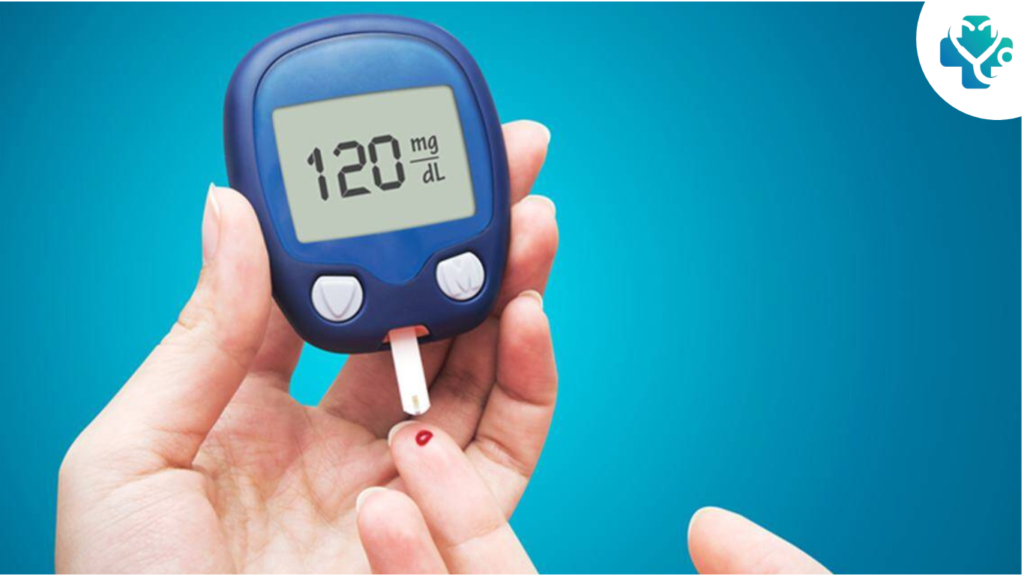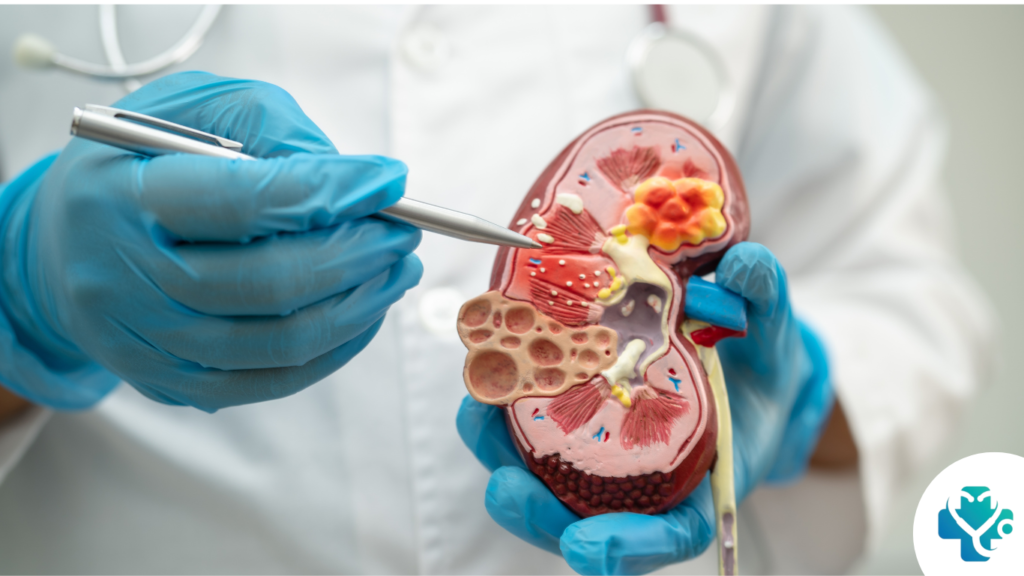
Dr. Neeraj Gupta recommends regular monitoring of blood sugar, blood pressure, and kidney function to ensure early detection of potential issues. Following a kidney-friendly diet, low in salt and protein, is crucial in maintaining kidney health. Staying physically active not only supports overall well-being but also helps reduce the strain on the kidneys. It is essential to take prescribed medications as directed and seek medical consultation at the first signs of kidney-related problems. Early care and adopting these lifestyle changes can significantly protect your kidneys and prevent complications caused by diabetes and hypertension.
In this blog, we’ll explore how diabetes and high blood pressure affect kidney health, the risk factors associated with both conditions, and how managing these conditions can support kidney disease prevention and protect your kidneys from long-term damage. By adopting practices like regular monitoring, a kidney-friendly diet, and staying physically active, individuals can reduce their risk of diabetic nephropathy (kidney disease caused by diabetes) and hypertension-induced kidney damage. Proper care and early detection of issues are key to maintaining kidney function and promoting overall health.
Understanding the Kidneys’ Role in Your Body
The kidneys are vital organs that filter waste products, toxins, and excess fluids from the bloodstream, producing urine. They also play a key role in maintaining blood pressure, balancing electrolytes, and producing hormones that support red blood cell production. When the kidneys are compromised, these essential functions can be disrupted, leading to serious health issues.
The Link Between Diabetes and Kidney Damage
Diabetes, particularly type 2 diabetes, is a major contributor to kidney disease. High blood sugar levels over time can damage the small blood vessels in the kidneys, impairing their ability to filter waste effectively. This damage is known as diabetic nephropathy and is a common complication of diabetes.
How Diabetes Impacts Kidney Health:
- High Blood Sugar Strain: Elevated blood sugar can damage the delicate filtration system in the kidneys.
- Increased Blood Pressure: Diabetes can lead to high blood pressure, further damaging the blood vessels in the kidneys.
- Protein Leakage: Damaged kidneys can start to leak protein (albumin) into the urine, an early sign of kidney disease.
- Waste Build-up: As kidney function declines, waste products can accumulate in the blood, affecting overall health.
- Blood Sugar Control: Regularly monitor and manage blood sugar levels through diet, exercise, and medication.
- Regular Check-Ups: Have routine tests for kidney function, including blood and urine tests.
- Healthy Diet: Opt for a kidney-friendly diet that limits salt, protein, and processed foods.
- Stay Hydrated: Proper hydration supports kidney function and helps flush out waste.
How High Blood Pressure Damages Your Kidneys
High blood pressure (hypertension) is another significant factor in kidney disease. It exerts extra force on the blood vessels, including those in the kidneys, causing damage over time. When blood vessels in the kidneys are damaged, they can’t filter blood effectively, leading to a buildup of waste and fluid in the body.
Ways High Blood Pressure Affects Kidney Health:
- Narrowed Blood Vessels: Hypertension can cause the blood vessels to narrow and weaken, affecting blood flow to the kidneys.
- Reduced Filtration: Damaged blood vessels hinder the kidneys’ ability to filter blood efficiently.
- Increased Risk of Kidney Failure: Persistent high blood pressure can lead to CKD, potentially resulting in kidney failure.
- Regular Monitoring: Keep track of blood pressure levels and follow your doctor’s advice for maintaining a healthy range.
- Limit Salt Intake: Reducing sodium in the diet can help control blood pressure and ease the kidneys’ workload.
- Exercise Regularly: Physical activity helps manage blood pressure and strengthens cardiovascular health.
- Medication Compliance: If prescribed blood pressure medication, take it as directed.
Recognizing the Early Signs of Kidney Damage

Kidney damage often develops gradually, so early signs may be subtle. Regular check-ups and being mindful of changes in your body are crucial for early detection.
Common Symptoms of Kidney Damage:
- Fatigue or weakness
- Swelling in the legs, ankles, or face
- Changes in urination (frequency, color, or appearance)
- Shortness of breath
- Persistent nausea
If you have diabetes or high blood pressure, ask your doctor for regular kidney function tests, including tests for protein in the urine and blood creatinine levels, to detect any early signs of kidney disease.
The Importance of Lifestyle Changes for Kidney Health
Managing diabetes and hypertension is possible with lifestyle adjustments. Here are some general tips that support kidney health:
- Eat a Balanced Diet: Focus on whole grains, fresh fruits, vegetables, and lean proteins. Avoid excess salt, sugar, and processed foods.
- Stay Physically Active: Exercise improves blood circulation, regulates blood pressure, and supports blood sugar control.
- Avoid Smoking and Limit Alcohol: Both smoking and heavy drinking can harm blood vessels, increasing the risk of kidney damage.
- Maintain a Healthy Weight: Excess weight is a risk factor for both diabetes and hypertension, so managing weight through a balanced diet and regular activity can help protect your kidneys.
The Role of Early Detection
Many kidney problems develop silently, with no obvious symptoms until they’re advanced,” says Dr. Neeraj Gupta. “Regular health screenings are crucial for early detection, allowing for timely intervention and better outcomes.”
By maintaining a healthy lifestyle and managing diabetes and hypertension effectively, individuals can protect their kidneys from long-term damage. Early detection and proactive care are the keys to reducing the risk of diabetic nephropathy and hypertension-related kidney disease, ensuring better health for years to come.



